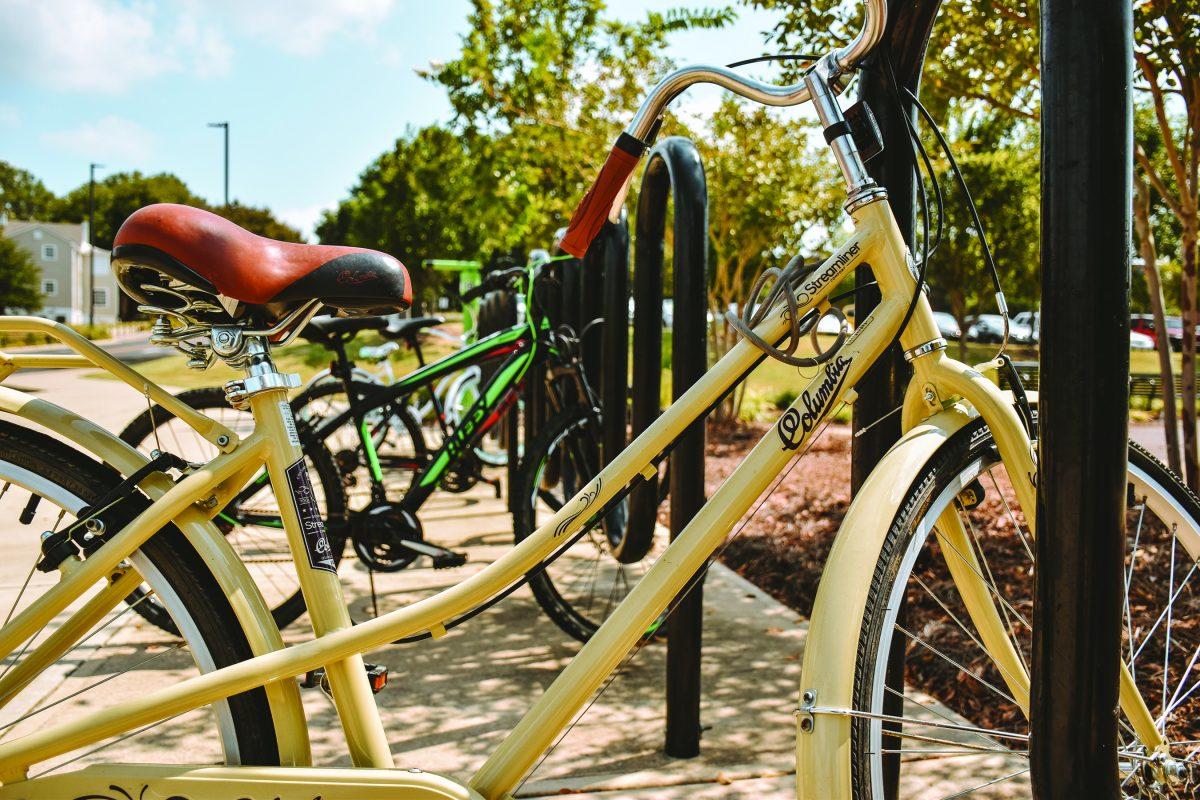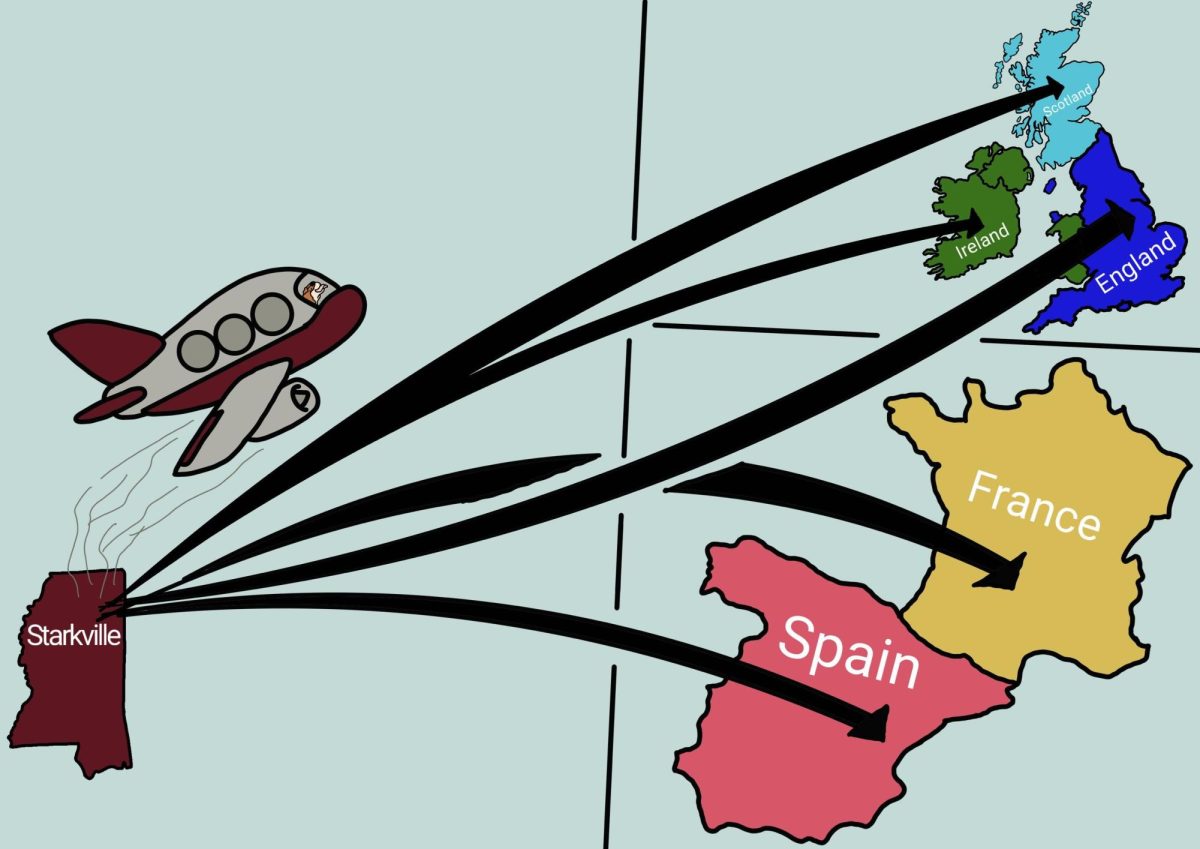The National Aeronautics and Space Administration (NASA) and many other scientists have gathered data on the changing conditions of the Earth. Between the global temperature rise, retreating ice caps and many more indicators, much research supports that the Earth is being altered by humanity’s habits. There are many ways to transition, with multiple avenues for information on how to adapt.
According to NASA’s website, “The number of record high temperature events in the United States has been increasing, while the number of record low temperature events has been decreasing, since 1950. The U.S. has also witnessed increasing numbers of intense rainfall events.”
Since our capitalistic society is submerged in plastic and low-cost production, it can be difficult to transition to a more sustainable lifestyle.
Here are some ways to reduce one’s ecological footprint as a Mississippi State University student.
First, reduce the consumption of plastic and other non-degradable substances. This means cutting out single-use plastics: water bottles, straws, cutlery, pre-cut fruits, vegetables and other items that use extra packaging.
One practical way to reduce plastic consumption on campus is to use the Eco Kit from MSU Dining Services. When signing up for a meal plan, a student can add a set of two cups and a clamshell for the price of $30. Also, a student can purchase a reusable cup for discounted coffee from Starbucks.
Abbey Foster, a junior business administration major, said she makes it her goal to live as eco-friendly as possible. When she started her journey to reduce her ecological footprint, she began with plastics.
“The first steps I took were to find more reusable alternatives for single use plastic. There is a lot I have cut back on. Like, I don’t use paper towels. I haven’t for two years,” Foster said.
These are better practices than continuously buying plastics and recycling. Even though recycling is a great, not everyone knows how to properly recycle. Fivethiryeight, an ABC News publication focusing on statistics, found that about 27% of recyclables are lost due to contamination.
There are also recycling bins located all throughout campus. Students can look out for these and utilized them when they need to dispose of their recyclable waste.
When placing plastics, aluminum or paper into the bins, make sure there is no food or other substances on it. Also, make sure it can be recycled. There are different numbers that represent the different types of plastic. On MSU’s campus, only level one and level two plastics can be recycled. Take for example, a Starkbucks cup. Starbucks cups are a level five plastic. Therefore, if a student throws a half-drank Starbucks cup in the recycling bin, this action may ruin everything else in the bin.
Another way to live more eco-friendly is to buy produce and meat from local farms. Not only is this great for the local economy by supporting our farmers, but it is better for the environment. Cecelia Marascalco, the President of the Students for a Sustainable Campus and an environmental studies and agricultural major, explains why local produce purchase is our best option.
“Local meat is better because they aren’t cutting down large forests and it has less emissions from lack of transportation,” Marascalco said.
As many know, one of the main contributors of climate change is animal agriculture because of the mass land and resources it requires. Therefore, consuming less animal products is a great way to start living sustainably. Abbey Foster explains this is one of the reasons why she went vegan.
“When I went vegan, I did a lot of research, and I found out that’s actually the most sustainable lifestyle. Just me may not make an impact, but if more people were vegan it would have a great impact, since animal agriculture is the leading cause of climate change,” Foster said.
For more detailed information on how to live sustainably and for a support system for a sustainable lifestyle, students can join one of the many clubs on campus. who focus on climate action. United Nations Association (UNA) and Students for a Sustainable Campus (SSC) are two of these clubs.
One of SSC’s main projects is picking up the trash in the Davis Wade Stadium after football games. Additionally, the club also has a community garden, where locals can purchase a plot of land to grow fruits, vegetables and herbs. UNA and other organizations are using advocacy efforts to educate the Starkville community of the importance of climate change and how to take action.
Additionally, there are many online resources. To find out one’s individual contribution to greenhouse gas emissions, go to footprintcalculator.org. On this website, a quick assessment will expose how everyday choices impact the Earth.
Of course, it is difficult to completely change a lifestyle in one day, but every action helps, and there are many ways to begin a sustainable lifestyle in Starkville and on MSU’s campus.
Abbey Foster said she promotes this progressional approach to living sustainably.
“There are a lot of little steps you can take, and it adds up,” Foster said.





















































































